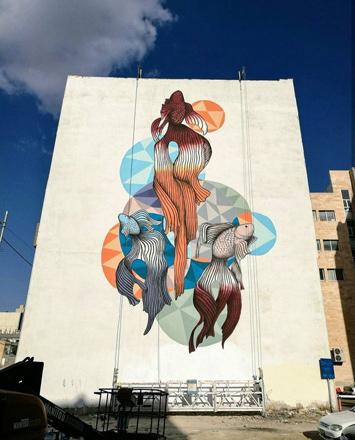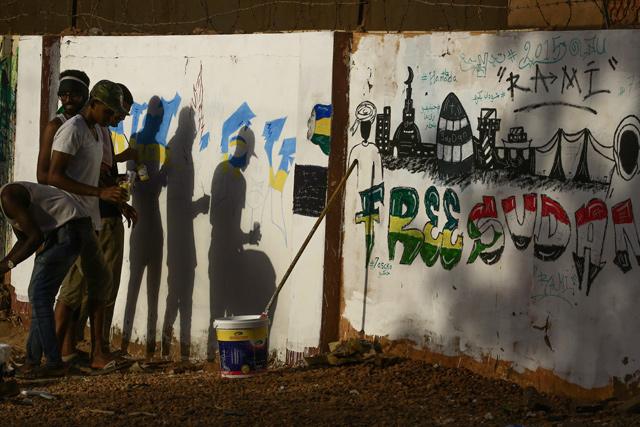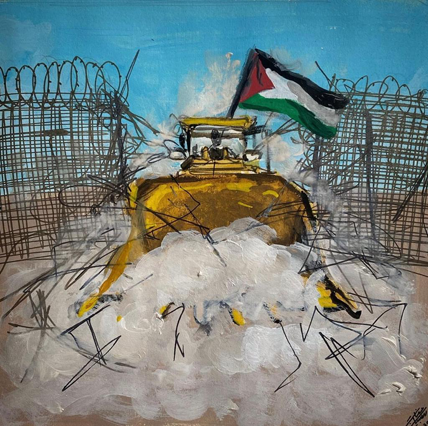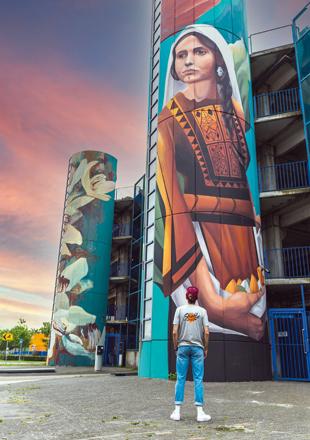You are here
Street artist talks fear of heights, Amman murals
By Ayesha Patel - Apr 24,2019 - Last updated at Apr 25,2019

In this undated photo, one of Yazan Mesmar’s murals in Amman can be seen. The artist says this painting of three fish was intended to make children stop and think about the artwork (Photo courtesy of Yazan Mesmar)
AMMAN — Yazan Mesmar utilises cranes and scaffolds to create murals multiple storeys high on buildings across Amman.
The Jordanian artist does this despite a fear of heights, he said, adding that he likes the fact that murals grasp people’s attention and makes them stop, stare and wonder.
Mesmar told The Jordan Times that he uses his graphic design background to plan his sketches and then paint them onto Amman’s walls.
However, despite having a library of graphic design artwork to draw inspiration from, he told The Jordan Times that the medium is simply a way of creating his clients’ visions. For instance, he once spray painted the wall of a school using drawings made by students.
Once commissioned, he said he has to “commit to the process”, because it is a long one, with planning sometimes taking up to three months. It is a two-step process: getting permission from the government and then getting permission from building owners.
On walls over three storeys high, Mesmar uses special equipment such as cranes. “I have to think about scale and proportion, which is difficult at a height,” he said. “To begin with, it’s an engineering process. Only in the final stages does it become art.”
“I enjoy the non-verbal responses to my artwork,” Mesmar said. “I especially like the reaction of children, because it’s always pure.”
Mesmar pointed to a design he did on a building in Sweifieh. The piece had three fish swimming vertically towards the top of the wall and was intended to make children stop and think about the artwork.
However, Mesmar said it was vital that he have a “mature relationship with his passion”, in order to balance artistic freedom with clients’ brands.
Mesmar’s artwork is often featured in exhibitions but can also be seen throughout Amman before the walls are sometimes painted over so that new artwork can be painted on top, making way for fresh designs and ideas.
“I like when it’s covered in white paint, it’s almost like censorship” the artist stated, adding that he preferred not to get too attached to his work and instead move on to his next project.
Related Articles
KHARTOUM — With the fall of veteran leader Omar Al Bashir, Sudan’s long-stifled graffiti artists are finally able to express their art,
AMMAN — Unleashing their full artistic potential, Arab artists unite in support of Palestine amid escalating Israel-Hamas conflict.Jordanian
AMMAN — This year the Open Art Museum is collaborating with the Embassy of the Kingdom of the Netherlands in Jordan to bring “Open Art Shuff

















